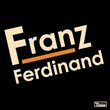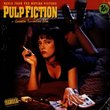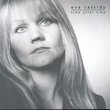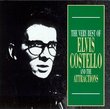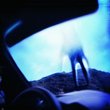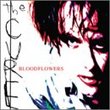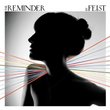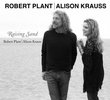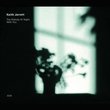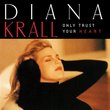| All Artists: The Cure Title: 4:13 Dream Members Wishing: 1 Total Copies: 0 Label: Geffen Original Release Date: 1/1/2008 Re-Release Date: 10/28/2008 Genres: Alternative Rock, International Music, Pop, Rock Styles: Europe, Britain & Ireland Number of Discs: 1 SwapaCD Credits: 1 UPCs: 4988005527837, 602517642256 |
Search - The Cure :: 4:13 Dream
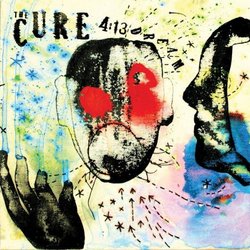 | The Cure 4:13 Dream Genres: Alternative Rock, International Music, Pop, Rock
2008 release, the 13th studio longplayer from the legendary Goth rockers led by Robert Smith. Now down to a quartet (Smith, Simon Gallup, Porl Thompson and Jason Cooper), the band continue to musically evolve while dealing... more » |
Larger Image |
CD DetailsSynopsis
Album Description 2008 release, the 13th studio longplayer from the legendary Goth rockers led by Robert Smith. Now down to a quartet (Smith, Simon Gallup, Porl Thompson and Jason Cooper), the band continue to musically evolve while dealing with subjects like relationships, the material world, politics and religion. The songs on 4:13 Dream are stripped down and 'in your face' while also sounding very much like The Cure. Includes the singles 'The Only One', 'Freakshow', 'Sleep When I'm Dead' and 'The Perfect Boy.' Similarly Requested CDs
|
CD Reviews4:13 Dream Andrew Vice | Plano, TX | 10/28/2008 (5 out of 5 stars) "Picture this: Disintegration is the beautiful model you see in a glossy magazine picture, glacially gorgeous, but in some ways unapproachable. Wish is the pretty girl you see at a party, and while she may not be Disintegration-beautiful, she's a hell of a lot more fun, and a lot easier to get into. Wild Mood Swings is the plain girl with a crush on the guy that will never have any interest in her, and that only makes her try harder and harder to please him, never able to really give him what he wants or make him into her. Bloodflowers is a dark, mysterious beauty, and when she isn't busy cutting herself, she's illustrating to you that she does in fact understand something about life, love, and pain, and you just have to stick with her long enough to get her message. The Cure is just an angsty emo girl sitting in her room decrying the state of the world with embarrassingly childish notebook poetry, listening to the bands that her daddy served as the greatest influence for. And now, we have 4:13 Dream, who just so happens to be the fun, cool, pretty girl that every guy wants to be around and every girl wants to be. Suffice to say, 4:13 Dream is probably the best album the Cure have released since Wish, depending on your personal preference for Bloodflowers. 4:13 Dream opens with what is easily the best song Robert Smith has written since Disintegration, Underneath The Stars. This is a dark, swirling, brutal kind of song, washing over the listener in layers of reverb guitar and plaintive echoed cries. Smith's singing and lyrics on this track are top notch, standing as the best track on the album, and one of the best Cure openers ever. The album moves on to the fun pop of The Only One, which I reviewed at length on its release. Track three, The Reasons Why, is a Wish-era pop rocker complete with rocking riffs and some glorious embarrassing lyrics about suicide. Freakshow is a fun funk track it he vein of Why Can't I Be You? And Hot Hot Hot!!!, though it fails to light quite the dancing fire that those songs did. Sirensong is a gorgeous strummed ballad, akin to something off of Bloodflowers, if Bloodflowers weren't so completely dark, and its definitely one of the album highlights, creating a bit of respite between the string a rockers that start with The Reasons Why. The Real Snow White and The Hungry Ghost work brilliantly together, building a tension based on a mass of riffing guitar and driving bass lines, with Smith singing with vigor and great subtlety. Switch is one of my less favored tracks on the album, failing to be as dark as the Pornography sound that influences it. The Perfect Boy, which I also reviewed upon its release as a single, is a smooth pop ballad, and definitely one of the best "love songs" that Smith has written since the `80s, though the whole "love" aspect of the tune is somewhat debatable. With The Perfect Boy out of the way, This. Here and Now. With You sets up the rock roller coaster that is the final four tracks of 4:13 Dream. It's a surprisingly spry track, and one that will likely grow on listeners as opposed to having instant appeal. Sleep When I'm Dead is a solid alt rocker, but not one of the best tracks on the album, weighed down with some strange God-complex lyrics. The Scream is the brutality that Switch fails to be, closing with an epic scream the likes of which I don't think we've ever heard from Smith. Closer, It's Over, is surprisingly fast paced for a Cure closing track, but it's good and works the album into a frenzy just before its abrupt end. All in all, 4:13 Dream is one of the best Cure records we've seen in a very long time, and I have no doubt that in years to come it will be at the top of many a fan's list. The Cure have recorded one of the best albums of the year, so don't miss out. 9.5/10" Better, but not quite a return to form Rebecca Farber | Skokie, Il United States | 11/13/2008 (3 out of 5 stars) "Full disclosure: I LOVE the Cure. They are my favorite band. However, I do not think they have released a first class record since Bloodflowers. I found the self titled album terribly disappointing, and this album, though better than the last, still leaves much to be desired. I fear Robert Smith is trying to remain young and relevant by embracing the modern emo/hardcore aesthetic, rather than the aesthetic that made them amazing in the first place. This was especially apparent with their choice of producer on the self titled album (Produced by Ross Robinson, who had previously worked with bands like Limp Bizkit), and with the emo bands bands they chose to remix their material on their latest EP, Hypnagogic States. While I think the writing on this album has improved dramatically, I think the production is HORRIBLE, and that damn near ruins the album for me. The bass and vocals are almost always mixed way too high, the drums sound thin and quiet, and the guitars are mixed so low they are sometimes hard to heard. This is a special shame, since it sounds like the shimmery guitars may be back on this record, but are often buried far too low. Working with another producer that is more familiar with and better able to handle the sound that the Cure are so good at (I would LOVE LOVE LOVE to see Alan Moulder get his hands on a Cure record), I truely think this could have been a return to form and another amazing record. The Cure need to embrace their role of elder statesmen of a genre and STOP trying to be a modern emo band. They are wonderful at making huge sounding, dense, dreamy music, and I would love to see them do that once again." Has its moments, but something is missing... Angry Mofo | 11/04/2008 (3 out of 5 stars) "If you hated The Cure's 2004 self-titled album, you might like 4:13 Dream more. But I liked the last album, although the grungy sound would have been more timely in 1992. Despite its flaws, I think I listen to it more often than to Wish. I'm less enthusiastic about this album, however.
What's especially noticeable, to me, is the crudeness of the vocals. It's not necessarily that Smith's voice has gotten worse, but it seems that there is much less variety in his performances. He doesn't emote much anymore. In most of these songs, he sort of half-yells, half-recites the lines, and it sounds like he's having a harder time fitting them into the music, like his voice is straining to keep up with the rhythm. For instance, the music in "The Only One" is almost exactly the same as in "High" from Wish (the intro induces serious deja vu), but Smith's vocal is much tighter and catchier on the 1992 album. And since his voice is loud in the mix here (like on the 2004 album), every flaw is made especially apparent. This "loose" feeling doesn't serve The Cure well -- somehow I suspect that this exact same song, with the same words and music, would have sounded a lot better if Smith had sung it ten years ago, with the more disciplined approach he had then. At the same time, "less catchy" is still pretty catchy, in this case. Even if you only listen to the first thirty seconds of "The Only One," you might not be able to get it out of your head. In fact, you might have a better impression of the song if you only listen to the first thirty seconds. But if you're willing to forgive Smith everything as long as he can still summon some of that addictive pop magic, well, he does enough of that to get off scot-free again. The band is going for more tonal variety on this album than on the last one. They've done away with the chugging alt-rock guitars. This time, the target seems to be The Head on the Door ("Sleep When I'm Dead" was actually written during those sessions, which may explain why it has the catchiest chorus on the album) or the sunny parts of Wish. But unfortunately, they don't recreate the clean sound of The Head On The Door. For some reason, every Cure album after Disintegration has been plagued by a somewhat muddy production, which blends the instruments together into a formless blur. This style actually worked pretty well in 2004, when the guitars were more aggressive, but it doesn't suit a sunny pop album -- rather, it just makes the songs sound more similar than they really should. It may also be that the band has become content to sketch out basic "Cure-like" grooves rather than actually writing new hooks. "Underneath The Stars" almost evokes the majesty of "Plainsong" with its expansive sound (it helps that this is one of the few songs on the album where Smith tones down his delivery a little), but this is entirely due to production sleight-of-hand. Recall that "Plainsong" also had a towering guitar line and thunderous percussion to add to the production, which are missing here. None of the songs can compete with "Lullaby" or "Fascination Street" for memorable musical content. I sometimes think that the band's latter-day albums would sound a lot better if Boris Williams were still drumming for them. Jason Cooper is good at playing typical rock patterns, but Williams always had all kinds of original rhythmic fills that were memorable pop hooks in and of themselves. Simon Gallup gets one chance to shine here, on "It's Over," but his bass is quickly overwhelmed by the noisy production. At least Smith's writing has improved a little. He still relies on rhymes like "head/bed," "cry/die," "please/squeeze," but at least these lyrics are less primitive than on the self-titled album. "The Hungry Ghost" is a critique of consumerism, a favourite topic for aging rock stars, but it's oblique enough to avoid sounding preachy. And there are even times when everything seems to come together almost like in the gloomy old days -- catchy lyrics, a good guitar hook, interplay between instruments... For example, look at the lovely guitar lines in "The Hungry Ghost," or the keyboard/guitar interaction in "The Reasons Why." It's not such a bad album. Objectively, it's probably better than the previous one, in some ways. But, paradoxically, it's less attention-grabbing, actually harder to listen to. Unlike the self-titled album, which tried to modernize their style, albeit using outdated grunge templates, I just can't see 4:13 Dream attracting a new audience, or even reinvigorating the old one." |

 Track Listings (13) - Disc #1
Track Listings (13) - Disc #1